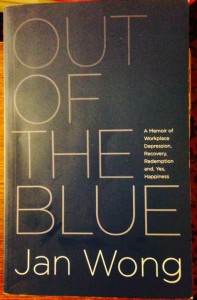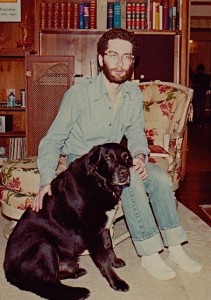From 1992-97, when I worked for Kodansha America, the US division of the major Japanese publisher, I had many interesting and talented colleagues, some of whom worked in New York, and others at the home office in Tokyo. My colleagues included both Westerners and Japanese. I didn’t often meet the ones who worked in Japan, but would occasionally see their names on inter-office memos and catalog materials. Among this group was Les Pockell, a lithe and witty fellow who after many years with the company in Tokyo came back to New York, working for Warner Books, later called Grand Central. He was also an anthologist of poetry and story collections. Sadly, Les died in 2010 at age 68. A Japanese colleague working in New York those years was my boss, Minato Asakawa, whose idea it was to publish Having Our Say: The Delany Sisters’ First 100 Years, the autobiography of two African-American sisters, Sadie and Elizabeth Delany, then both more than 100 years old. It became a huge bestseller in hardcover and paperback, and was adapted into a Broadway play. Under Asakawa, I had the opportunity to acquire and publish many terrific books, such as A Diary of the Century: Tales from American’s Greatest Diarist by Edward Robb Ellis, and his one-volume hsitory, The Epic of New York City. Together, Asakawa and I published the Kodansha Globe series, which in many ways anticipated the fine list published nowadays by the New York Review of Books Classics imprint. Kodansha Globe combined titles in cross-cultural studies, anthropology, natural history, adventure, narrative travel and belle lettres. By the time I left Kodansha in 1997 we had published more than ninety Globe titles, including the first paperback edition of Barack Obama’s first book Dreams From My Father.
Another Westerner in the Tokyo contingent, though one I never met face-to-face was editor Barry Lancet. Last year, I read in PublishersMarketplace.com that Barry was going to debut as an author, publishing his first novel, a thriller. I made a mental note of that good news, and before I could get in touch with Barry to renew our old acquaintanceship, a mutual friend in the book business, publicity professional Jeff Rutherford, put Barry in touch with me. We exchanged personal and professional news and I congratulated him on publication of his first book. I was pleased then when in December I got a copy of Japantown from his editor at Simon & Schuster. After working through a lot of reading that piled up during the holidays, I started Japantown this week, and am totally engrossed by it. Here’s a rundown with no plot points you wouldn’t pick up in the first quarter of the novel.
The book is at first set in San Francisco where protagonist Jim Brodie works as a dealer in Asian antiquities** at the same time maintaining connection with the private detective agency his late father founded and ran in Tokyo, with many local employees. In the wake of the death of the younger Brodie’s wife Mieko in a mysterious and unsolved fire, Brodie’s a single dad living with his grade school age daughter, Jenny. Combining his two areas of expertise, Brodie is the new go-to-guy when the San Francisco Police Department find itself investigating a grisly mass murder with Japanese victims and characteristics: A Japanese family of five has been gunned down after dark in a public park. At the scene, Brodie finds only one clue, a paper artifact emblazoned with the same written character (kanji in Japanese) as was found at the scene of his wife’s death. Brodie doesn’t realize, though the reader knows, that even as he surveys the scene of the brutal killing he and Renna are being surveilled with lenses and cameras by unknown agents. Though not knowing the extent of the surveillance he’s under, he senses someone’s watching him, at his gallery and even at home with Jenny. With the obscure kanji in hand, Brodie undertakes an investigative trip to Japan, first putting Jenny in to the protective embrace of a police safe house. Once in Japan, the malign forces behind the killings begin taking aim at Brodie and one of his most trusted colleagues, Noda.
All the past work week I was looking for more time to read Japantown, and I’m glad it’s now the weekend, with some uninterrupted time for reading. Lancet’s writing is vivid and economical and the plotting assured. If you want to learn more about Lancet and his background, including some very good advice for aspiring writers, I suggest you visit his website or follow him on twitter @BarryLancet. I’ll post more about his book later, but for now I want to say I recommend it highly.
WEDNESDAY JAN 29 UPDATE I finished Japantown the other day and it was great to the last page! A totally gripping international thriller. I’ll post more about it later. Best thing is, I believe Barry Lancet’s already working on Book II.
** Antiquities dealer is a profession I’m partial to in mysteries, like the POT THIEF series for which I’m the agent, with J. Michael Orenduff’s six books which went on sale this week from Open Road. In the POT THIEF books, set in an Albuquerque, main character Hubie Schuze is a dealer in Native American ceramics, and a capable ceramicist himself. The books are memorably titled: The Pot Thief Who Studied Pythagoras,The Pot Thief Who Studied Ptolemy,The Pot Thief Who Studied Einstein,The Pot Thief Who Studied Escoffier,The Pot Thief Who Studied D. H. Lawrence, and The Pot Thief Who Studied Billy the Kid. As the titles suggest, Hubie’s reading and appreciation of classic texts by, and the venerable lives of scientists, writers, a chef and an outlaw, make for enjoyable mystery fiction.





